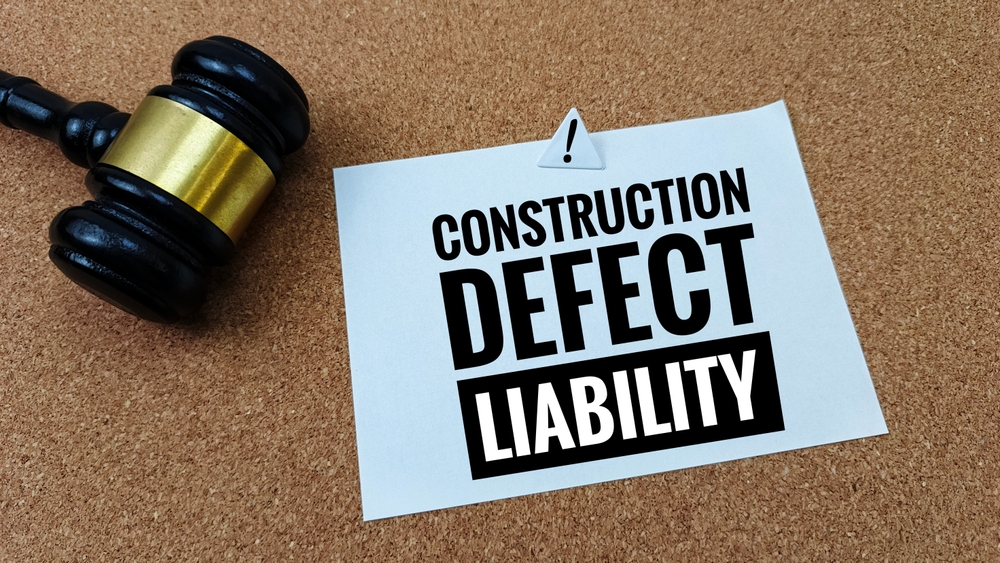

The following is adapted from Quit Getting Screwed.
Imagine the next subcontracting job you might take. How confident are you that you can complete everything in the scope of work? Are you willing to bet your personal bank account that you can finish the job on time? What about your house or car?
If you’re uncomfortable with risking your personal assets, you should be. But that’s what you do whenever you sign a subcontract that has a personal guarantee.
In my experience as an attorney who has helped countless clients negotiate subcontracts, you should never sign a personal guarantee. Too much can go wrong, and it will be your entire financial life on the line, not just your company.
To understand why personal guarantees have no place in your subcontract, let’s first take a look at what they mean.
Signing a personal guarantee means that if your business becomes unable to repay any debt, you as an individual assume personal responsibility for the balance. That means judgments can be made against your personal bank accounts and assets—whether that’s your house, car, or any other personal property.
For example, imagine that you encounter major problems with a job, and you can’t afford the materials required to complete the scope of work. You default on the subcontract, and the general contractor can seek reimbursement from you for the cost it took to finish the work you left incomplete. Normally, they’d only be able to sue your company, but if you’ve signed a personal guarantee, they can go after you too.
The truth is that personal guarantees are such a bad deal, even general contractors don’t actually expect you to sign them. In my experience, a general contractor that asks you to sign a personal guarantee as part of a subcontract is “sucker fishing.”
They expect you either to say that you will not sign it or to send the subcontract back and sign everything but the personal guarantee. If you do sign the personal guarantee, however, it’s a win for them—they will gladly accept it and use it against you.
What should you do if a general contractor sends you a subcontract requiring a personal guarantee?
The answer is: always negotiate. The initial subcontract that the general contractor sends over is just their first offer. If you agree to everything, it’s like paying the sticker price for a new car. Everyone knows the dealer will take less than the sticker price, and they expect you to negotiate. It’s the same with a subcontract. The general contractor expects negotiations; it shows that you are informed and paying attention.
If the general contractor insists on the personal guarantee as part of a subcontract, walk away. However, there are times when you have to sign a personal guarantee, like when you are buying property for your company, or if you are buying a vehicle or equipment for your business. In those circumstances, it is normal to sign a personal guarantee because you usually cannot negotiate the terms of a loan agreement with a bank for vehicles, equipment, or property.
At The Cromeens Law Firm, we have extensive knowledge and understanding of construction contract laws and are licensed in Texas, Louisiana, Georgia, and California. We are often able to solve contract disputes for our clients through informal negotiations, mediation, or arbitration. Work with us to equip yourself with the ability to properly evaluate your risks before you sign and negotiate your next subcontract with greater confidence and ease.
The following is adapted from Quit Getting Screwed.
In addition to not signing subcontracts that require personal guarantees, you can go a step further to protect your personal assets by incorporating. Being incorporated means your company is legally recognized as one of the following entities: a corporation, a limited liability company, a limited liability partnership, a limited partnership, or a professional corporation.
Once you are incorporated, your business becomes its own entity and will need its own bank account that only business funds run through. You will become an employee of your company. It is vitally important that you keep the company’s business separate from your individual income and expenses. If you do not treat your company as a separate entity, the law won’t either. Using your company assets and accounts for personal expenses could lead to personal liability.
Treating your company as its own entity is important because of the protection it provides. Any debts or wrongdoing of the company can only be held against the company, not you personally.
The Cromeens Law Firm is here to protect you and your business. We can help you not only negotiate personal guarantees but also get your business incorporated to shield against losing your money and your assets. Our hope is that you never sign a subcontract that puts you out of business. Work with us to equip yourself with the ability to properly evaluate your risks and negotiate your next subcontract with greater confidence and ease.
The next time you’re considering a subcontract that asks for a personal guarantee, consider the risks. Are you willing to bet your personal bank account on the job? What would happen if you lost your house or car?
Remember, even as they’re asking you to sign the document, general contractors don’t actually expect you to sign a personal guarantee. They’re sucker fishing, so don’t take the bait! Negotiate for the guarantee’s removal from your subcontract, or walk away from the job altogether.
Be firm on the stance of never signing a personal guarantee, and your business assets and personal assets will stay where they belong: separate.
For more advice on negotiating better subcontracts, you can find Quit Getting Screwed on Amazon.
Amazing wife, outstanding mother to three super talented daughters, small business owner, and committed leader to more than twenty employees, Karalynn has been a licensed attorney for more than fifteen years. She has spent her entire legal career in construction litigation, advising countless clients on how to stay out of litigation in the construction industry. Karalynn has reviewed thousands of subcontracts, breaking them down so her clients could understand exactly what they were signing, and giving those clients tips and advice on how to negotiate the best subcontract possible. Now she’s offering that same advice to you in Quit Getting Screwed. For materials referenced in the book, visit subcontractorinstitute.com.
Karalynn Cromeens is the Owner and Managing Partner of The Cromeens Law Firm, PLLC, with over 17 years of experience in construction, real estate, and business law. A published author and passionate advocate for contractors, she has dedicated her career to protecting the businesses her clients have built. Karalynn is on a mission to educate subcontractors on their legal rights, which inspired her books Quit Getting Screwed and Quit Getting Stiffed, as well as her podcast and The Subcontractor Institute.

